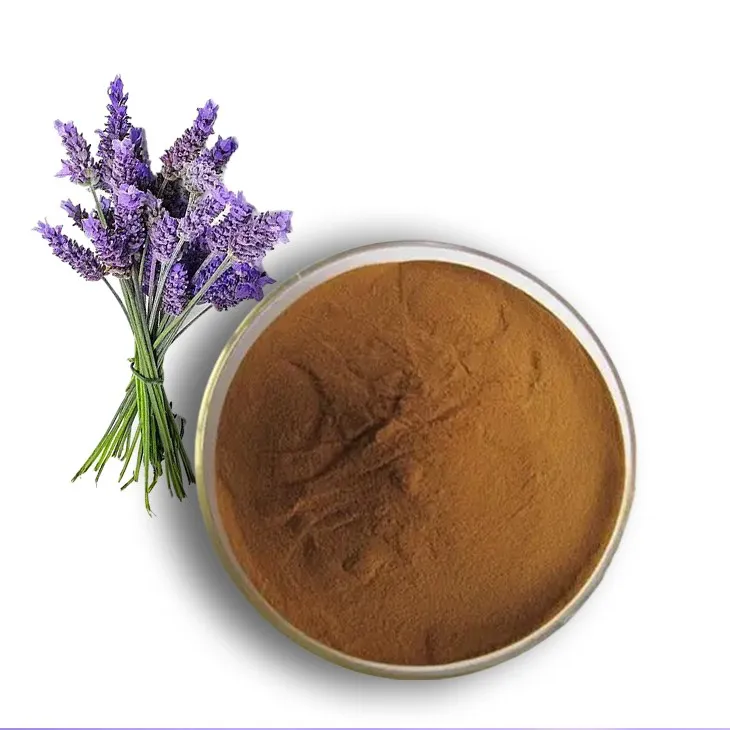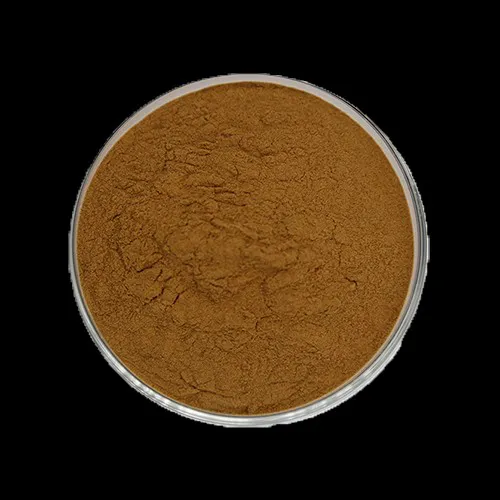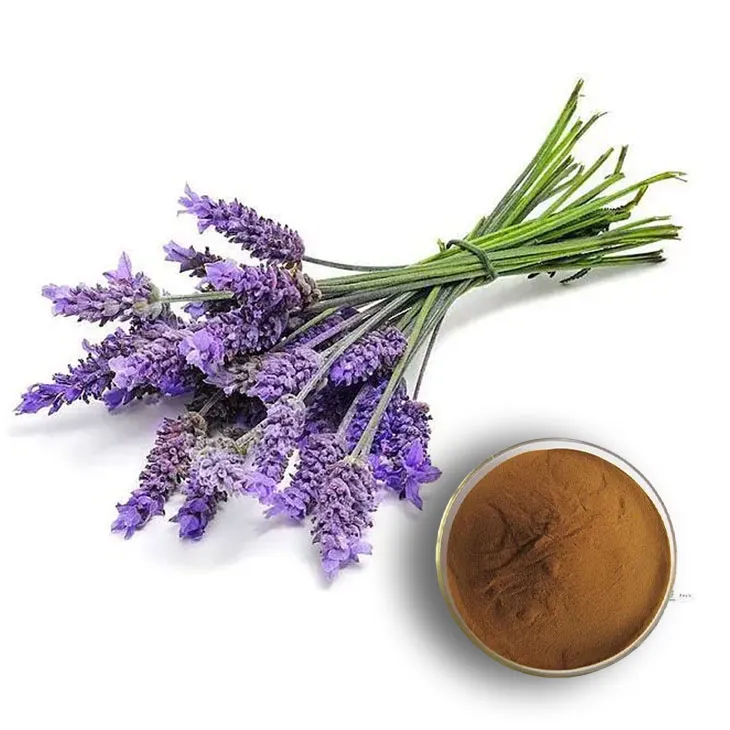- 0086-571-85302990
- sales@greenskybio.com
What is lavender extract and why is it used on the skin?
2024-11-14

1. Introduction to Lavender Extract
Lavender Extract is a natural product that is derived from the lavender plant, scientifically known as Lavandula. This plant is native to the Mediterranean region but is now cultivated in many parts of the world due to its numerous beneficial properties. The extraction process involves obtaining the essential oils and other active components from the lavender plant, which can be done through methods such as steam distillation.
The components present in Lavender Extract are what make it so valuable. Linalool and lavandulyl acetate are two of the main constituents. Linalool is known for its pleasant floral scent and also has various biological activities. Lavandulyl acetate contributes to the overall aroma and has its own set of properties that are beneficial for the skin.

2. Anti - Inflammatory Properties
2.1 Soothing Irritated Skin
- One of the key reasons lavender extract is used on the skin is its anti - inflammatory properties. When the skin is irritated, whether it's due to environmental factors like harsh weather, or internal factors such as an allergic reaction, lavender extract can come to the rescue.
- It works by interacting with the skin's cells and reducing the release of inflammatory mediators. For example, it can inhibit the production of cytokines, which are small proteins that play a crucial role in the inflammatory response. This helps in calming down the skin and reducing the discomfort associated with irritation.
2.2 Reducing Redness and Swelling
- Redness and swelling are common symptoms of inflamed skin. Lavender extract can effectively address these issues.
- It helps in constricting the blood vessels near the surface of the skin. By doing so, it reduces the amount of blood that accumulates in the area, which in turn lessens the redness. Additionally, it reduces the fluid buildup that causes swelling, making the skin look and feel better.
- This is especially beneficial for those with sensitive skin or acne - prone skin. Sensitive skin is more likely to react to various stimuli and become inflamed easily. Acne - prone skin is often inflamed due to the presence of acne - causing bacteria and the body's immune response to it. Lavender extract can help in both cases by reducing the inflammation and promoting a healthier skin environment.

3. Antioxidant Effects
3.1 Combating Free Radicals
- Lavender extract has antioxidant effects, which are crucial for maintaining healthy skin. Free radicals are unstable molecules that are formed in the body due to various factors such as exposure to UV radiation, pollution, and stress. These free radicals can cause damage to the skin cells by stealing electrons from them.
- The antioxidant components in lavender extract, such as flavonoids, can neutralize these free radicals. They do this by donating electrons to the free radicals, thereby making them stable and preventing them from causing further damage to the skin.
3.2 Anti - Aging Benefits
- As free radicals are a major cause of skin aging, the antioxidant properties of lavender extract can help in slowing down the aging process.
- It helps in reducing the appearance of wrinkles and fine lines. By preventing free radical damage to the collagen and elastin fibers in the skin, which are responsible for maintaining the skin's firmness and elasticity, lavender extract keeps the skin looking youthful.
- It also helps in improving the overall texture of the skin. The skin becomes smoother and more supple, as the antioxidant action helps in maintaining the health of the skin cells at a deeper level.

4. Effects on Skin Tone and Texture
4.1 Evening Out Skin Tone
- Lavender extract can have a positive impact on skin tone. It can help in reducing the appearance of dark spots and hyperpigmentation.
- This may be due to its ability to regulate the production of melanin, the pigment responsible for skin color. By controlling melanin production, it can prevent the formation of excessive dark spots and promote a more even skin tone.
4.2 Improving Skin Texture
- In addition to its effect on skin tone, lavender extract also improves skin texture.
- It helps in exfoliating the skin gently. This is not like a harsh physical exfoliation but rather a more natural process where it promotes the shedding of dead skin cells. As a result, the skin becomes smoother and has a refined texture.
- It also enhances the skin's natural barrier function. A healthy skin barrier is essential for keeping the skin hydrated and protected from external aggressors. By strengthening this barrier, lavender extract helps in maintaining the overall health and texture of the skin.
5. Relaxing Aroma and Stress Reduction
5.1 The Aroma of Lavender
- The pleasant aroma of lavender extract is one of its unique features. The scent of lavender is well - known for its relaxing and calming properties.
- When applied to the skin, the aroma is released gradually, creating a soothing environment. This can be especially beneficial during a skincare routine, as it can turn a routine task into a more relaxing and enjoyable experience.
5.2 Indirect Benefits for Skin Health
- Stress can have a negative impact on the skin. When a person is stressed, the body releases hormones such as cortisol, which can disrupt the skin's normal functions. This can lead to issues such as increased oil production, breakouts, and a dull complexion.
- By reducing stress through its relaxing aroma, lavender extract indirectly benefits the skin's health. A more relaxed state of mind can lead to a healthier hormonal balance, which in turn reflects on the skin in a positive way.
6. How to Use Lavender Extract on the Skin
6.1 Lavender - Infused Skincare Products
- One of the easiest ways to use lavender extract on the skin is through lavender - infused skincare products. There are a wide variety of such products available in the market, including lotions, creams, serums, and facial masks.
- These products are formulated with lavender extract in a way that is suitable for different skin types. For example, a lavender - infused lotion may be more suitable for normal to dry skin, as it provides hydration along with the benefits of lavender extract.
6.2 DIY Lavender Skin Treatments
- For those who prefer a more natural and hands - on approach, DIY lavender skin treatments are also an option.
- One simple DIY treatment is a lavender - infused oil. This can be made by steeping dried lavender flowers in a carrier oil such as jojoba oil or almond oil for a few weeks. The resulting oil can be used for massaging the skin or as a moisturizer.
- Another option is a lavender - based toner. This can be prepared by boiling lavender flowers in water, straining the liquid, and then using it as a toner after cleansing the face. However, it's important to note that when making DIY skincare products, proper hygiene and safety measures should be followed to avoid any skin irritations or infections.
7. Precautions and Considerations
7.1 Allergic Reactions
- While lavender extract is generally considered safe for most people, there is still a possibility of allergic reactions. Some individuals may be allergic to the components present in lavender, especially linalool.
- Before using lavender - based skincare products or treatments, it's advisable to do a patch test. This involves applying a small amount of the product on a small area of the skin, such as the inside of the wrist, and waiting for 24 - 48 hours to see if any allergic reaction occurs, such as redness, itching, or swelling.
7.2 Purity of Lavender Extract
- The purity of the lavender extract used in skincare products can also vary. Some products may contain synthetic additives or low - quality lavender extract.
- It's important to choose high - quality products from reliable sources. Look for products that are labeled as "pure lavender extract" or that have a high percentage of natural lavender components. This ensures that you are getting the maximum benefits from the lavender extract without any potential harmful effects from impurities.
8. Conclusion
Lavender extract is a natural and versatile ingredient that offers numerous benefits for the skin. Its anti - inflammatory, antioxidant, and skin - improving properties, along with its relaxing aroma, make it a popular choice in skincare. Whether used in commercial skincare products or in DIY treatments, it can play a significant role in maintaining healthy, beautiful skin. However, it's important to be aware of potential allergic reactions and to ensure the purity of the extract when using it on the skin.
FAQ:
1. How is lavender extract made?
Lavender extract is typically made through a process of extraction from the lavender plant. This can involve methods such as steam distillation. In steam distillation, steam is passed through the lavender plant material. The heat causes the essential oils, which contain the beneficial components like linalool and lavandulyl acetate, to vaporize. These vapors are then condensed back into a liquid form, which is the lavender extract.
2. Can lavender extract be used on all skin types?
While lavender extract has many benefits, it may not be suitable for all skin types in all circumstances. For the most part, it is well - tolerated by many skin types, especially normal, dry, and sensitive skin. However, some people with very sensitive skin or certain allergies may experience irritation. Also, those with oily or acne - prone skin should test it on a small area first, as although it can be beneficial for acne - prone skin in terms of its anti - inflammatory properties, individual reactions can vary.
3. How often can lavender extract be applied to the skin?
The frequency of application depends on various factors. For general skin care purposes, it can be applied once or twice a day. If you are using it to treat a specific skin condition like mild inflammation or redness, you may start with once - a - day application and monitor the skin's response. However, over - application may lead to skin irritation in some cases, so it's important to observe how your skin reacts.
4. Are there any side effects of using lavender extract on the skin?
Although lavender extract is generally considered safe for skin use, there can be some side effects. As mentioned before, some people may experience skin irritation or allergic reactions. In rare cases, if the extract is not pure or if it is combined with other substances that the skin is sensitive to, it could cause redness, itching, or a rash. Additionally, if it gets into the eyes, it can cause irritation.
5. How does lavender extract compare to other skin - care ingredients in terms of anti - aging?
Lavender extract has antioxidant properties that help in fighting free radicals, which is one aspect of anti - aging. However, compared to some other well - known anti - aging ingredients like retinol or vitamin C, its mechanism of action is different. Retinol is known for its ability to increase cell turnover, while vitamin C is a powerful antioxidant and also helps in collagen synthesis. Lavender extract, on the other hand, focuses more on combating free radicals and reducing inflammation, which can also contribute to healthier - looking skin as part of an overall anti - aging strategy.
Related literature
- The Benefits of Lavender in Skin Care"
- "Lavender Extract: Composition and Skin - related Properties"
- "Natural Skin Care Ingredients: Lavender's Role"
- ▶ Hesperidin
- ▶ citrus bioflavonoids
- ▶ plant extract
- ▶ lycopene
- ▶ Diosmin
- ▶ Grape seed extract
- ▶ Sea buckthorn Juice Powder
- ▶ Beetroot powder
- ▶ Hops Extract
- ▶ Artichoke Extract
- ▶ Reishi mushroom extract
- ▶ Astaxanthin
- ▶ Green Tea Extract
- ▶ Curcumin Extract
- ▶ Horse Chestnut Extract
- ▶ Other Problems
- ▶ Boswellia Serrata Extract
- ▶ Resveratrol Extract
- ▶ Marigold Extract
- ▶ Grape Leaf Extract
- ▶ blog3
- ▶ blog4
- ▶ blog5
-
Organic Tongkat Ali extract powder factory.
2024-11-14
-
How to make powder with ashwagandha extract.
2024-11-14
-
Rosehip extract manufacturers from China.
2024-11-14
-
The best cat's claw extract in nature.
2024-11-14
-
Chinese Dandelion Leaf Extract Suppliers.
2024-11-14
-
Thunder God Vine Extract
2024-11-14
-
Hops Extract
2024-11-14
-
Medicinal Marshmallow Extract
2024-11-14
-
Lemon Balm Extract
2024-11-14
-
Ginseng Root Extract
2024-11-14
-
Black Pepper Extract
2024-11-14
-
Troxerutin
2024-11-14
-
Aminolevulinic acid
2024-11-14
-
Buckthorn bark extract
2024-11-14
-
Lemon Juice Powder
2024-11-14





















